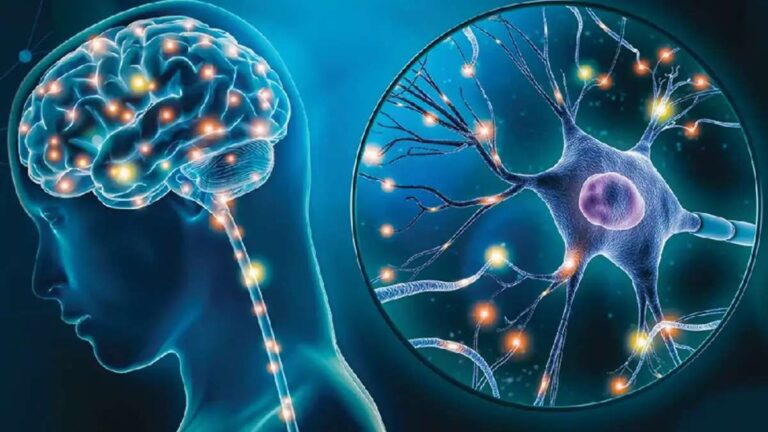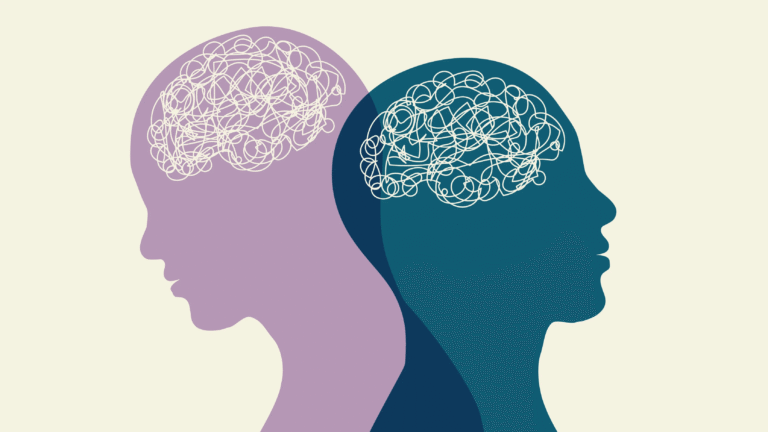Anger is a natural human emotion that everyone experiences from time to time. However, when anger is not managed properly, it can lead to harmful consequences, both for the individual experiencing anger and for those around them. Uncontrolled anger can strain relationships, impair judgment, and negatively impact physical and mental health.
Anger management exercises play a crucial role in helping individuals effectively deal with their anger in healthy and constructive ways. These exercises provide practical tools and techniques to manage anger, reduce its intensity, and prevent it from escalating into destructive behavior.
By engaging in anger management exercises, individuals can:
- Improve Emotional Regulation: Anger management exercises teach individuals how to recognize and regulate their emotions, leading to better control over impulsive reactions.
- Enhance Communication Skills: Effective anger management involves learning how to express feelings and needs assertively and respectfully, fostering better communication and conflict resolution.
- Strengthen Relationships: Learning to manage anger can improve relationships by reducing conflict and fostering understanding and empathy.
- Reduce Stress and Anxiety: Anger management exercises often incorporate relaxation techniques that help individuals manage stress and anxiety, promoting overall well-being.
8 Anger Management Exercises To Calm Yourself Down
Here are eight anger management exercises designed to help individuals control and channel their anger constructively –
1. Deep Breathing
Deep breathing techniques encompass a variety of methods that focus on controlling and manipulating the breath to achieve specific outcomes, such as relaxation, stress reduction, and improved mental clarity.
While the overarching goal of deep breathing is to engage the diaphragm and promote fuller breaths, there are several variations of deep breathing techniques, each with its own unique benefits. Here are explanations of some common types of breathing techniques:
- Diaphragmatic Breathing: It is also known as belly breathing, involves engaging the diaphragm muscle to expand the abdomen during inhalation, allowing for deeper breaths that fill the lungs more fully.
- The 4-7-8 Breathing (Relaxing Breath): The technique involves inhaling for a count of 4, holding the breath for a count of 7, and exhaling for a count of 8. This pattern is repeated for several breaths.
- Alternate Nostril Breathing (Nadi Shodhana): It is a yogic breathing technique that involves alternating nostrils during inhalation and exhalation. This technique aims to balance the flow of energy in the body and calm the mind.
- Box Breathing (Square Breathing): It involves inhaling, holding, exhaling, and holding the breath for equal counts, creating a square pattern of breath.
- Ujjayi Breathing (Victorious Breath): It is a yoga breathing technique that involves gently constricting the back of the throat during inhalation and exhalation, creating an audible ocean-like sound.
2. Brisk walk
Brisk walking is a simple yet effective form of aerobic exercise that involves walking at a faster pace than usual. It’s a low-impact activity that can be easily incorporated into daily routines and doesn’t require any special equipment.
Brisk walking typically involves swinging the arms and taking longer strides, engaging more muscles and increasing heart rate compared to leisurely strolls.
Here’s how brisk walking aids in anger management:
- Stress Reduction: Brisk walking promotes the release of endorphins, the body’s natural mood lifters, which can help reduce stress and promote a sense of well-being. This can be particularly beneficial during moments of anger or irritability.
- Physical Release: The repetitive motion of brisk walking allows individuals to channel their anger into physical activity, releasing muscle tension and providing an outlet for pent-up energy.
- Distraction from Anger: Engaging in brisk walking shifts focus away from the source of anger and redirects attention to the present moment. This can help individuals gain perspective on the situation and prevent rumination.
- Brain Boost: Physical exercise, including brisk walking, increases blood flow to the brain, promoting clarity of thought and improving cognitive function. This can help individuals approach anger-inducing situations with greater rationality and problem-solving ability.
- Time for Reflection: Brisk walking provides an opportunity for introspection and reflection. As individuals move their bodies and breathe deeply, they may find it easier to process their emotions and gain insight into the root causes of their anger.
3. Running
Running is a highly effective form of aerobic exercise that offers numerous benefits for managing anger and promoting emotional well-being:
- Stress Reduction: Running triggers the release of endorphins, often referred to as “feel-good” hormones, which can help alleviate stress and elevate mood. The rhythmic motion of running can also induce a state of relaxation, reducing tension and anxiety associated with anger.
- Energy Release: Running provides a healthy outlet for releasing pent-up energy and frustration. Engaging in vigorous physical activity like running allows individuals to channel their anger into productive movement, promoting a sense of catharsis and relief.
- Enhanced Mood: Regular running has been linked to improvements in mood and overall mental health. The sense of accomplishment and satisfaction that comes from completing a run can boost self-esteem and confidence, helping individuals better cope with anger and negative emotions.
- Improved Sleep Quality: Running can help regulate sleep patterns and improve sleep quality, which is essential for overall emotional well-being. Adequate restorative sleep can reduce irritability and enhance resilience to stressors that may trigger anger.
- Increased Focus and Clarity: Running can clear the mind and improve cognitive function, making it easier to process emotions and gain perspective on anger-inducing situations. The rhythmic nature of running can promote mindfulness, allowing individuals to stay present and focused on the task at hand.
4. Boxing
Boxing, often recognized as a combat sport, offers more than just physical training—it serves as a powerful tool for anger management. The combination of intense physical activity and mental focus in boxing makes it an effective way to channel and release anger in a controlled environment.
In boxing, individuals engage in various activities such as punching bags, shadowboxing, and sparring. These activities require concentration, discipline, and technique, which help individuals channel their anger into productive movement rather than expressing it in harmful ways.
The physical exertion involved in boxing triggers the release of endorphins, neurotransmitters that promote feelings of pleasure and reduce stress. This natural mood lift can help alleviate anger and promote relaxation.
Furthermore, boxing provides an opportunity to confront and address anger in a safe and structured setting. Through training and practice, individuals learn to manage their emotions, control their impulses, and develop coping strategies for dealing with anger-inducing situations.
5. Yoga
Through yoga practice, individuals develop a deeper understanding of their thoughts, emotions, and physical sensations. This heightened self-awareness allows them to recognize the signs of anger arising within and respond more skillfully.
Yoga incorporates gentle movements, stretching, and relaxation techniques that help release tension stored in the body. By engaging in mindful movement and deep breathing, individuals activate the body’s relaxation response, counteracting the physiological effects of anger.
The practice of yoga cultivates emotional intelligence and resilience, empowering individuals to navigate challenging emotions like anger with greater ease. By learning to observe and accept their emotions without judgment, individuals can respond to anger triggers more mindfully and effectively.
Yoga teaches self-compassion and forgiveness, encouraging individuals to cultivate kindness and understanding towards themselves and others. By practicing self-compassion, individuals can soften the harsh self-criticism often associated with anger and foster a sense of inner peace and acceptance.
6. Hiking
Hiking allows individuals to immerse themselves in natural surroundings, which can have a calming and grounding effect on the mind. Being in nature has been shown to reduce stress, lower blood pressure, and promote relaxation, making it an ideal setting for anger management.
The rhythmic motion of walking, combined with the sights, sounds, and smells of nature, can help individuals relax and unwind. Hiking provides a temporary escape from the stressors of everyday life, allowing individuals to clear their minds and gain perspective on anger-inducing situations.
Hiking encourages mindfulness, the practice of being fully present in the moment without judgment. As individuals navigate trails and absorb the beauty of their surroundings, they become more attuned to their senses and less reactive to negative emotions like anger.
Hiking offers individuals an opportunity for solitude and introspection, away from the distractions of modern life. Spending time alone in nature allows individuals to reflect on their emotions, process anger, and gain clarity on how to respond more skillfully.
7. Dance
Dance serves as a powerful therapeutic tool for managing anger, offering a unique avenue for emotional expression and release. Here’s an in-depth look at how dance functions as an effective anger management exercise:
Dance provides a safe and constructive outlet for the release of pent-up emotions, including anger. Through movement, individuals can physically express their feelings, allowing them to move beyond verbal communication and connect with their emotions on a deeper level.
Anger often manifests as physiological arousal, such as increased heart rate and muscle tension. Dance allows individuals to channel this physical energy into movement, providing a healthy and constructive way to release tension and stress from the body.
Dancing triggers the release of endorphins, neurotransmitters known for their mood-enhancing and stress-reducing effects. Engaging in dance can help individuals manage the physiological and psychological effects of anger by promoting relaxation and enhancing mood.
8. Meditation
Meditation is a practice that involves training the mind to achieve a state of focused awareness and inner calm, offering profound benefits for managing anger. Here’s a detailed exploration of how meditation serves as a valuable tool for anger management:
Meditation cultivates mindfulness, the practice of non-judgmental awareness of the present moment. By becoming more mindful, individuals gain insight into their thoughts, emotions, and reactions, including the triggers that lead to anger.
Meditation enhances emotional regulation by helping individuals develop greater self-control and resilience in the face of anger. Through regular meditation practice, individuals learn to observe their emotions without becoming overwhelmed by them.
Anger is often accompanied by stress and tension in the body. Meditation promotes relaxation and reduces physiological arousal, helping individuals release tension and stress associated with anger.
Conclusion
Anger management exercises offer diverse and effective strategies for individuals to regulate their emotions and cultivate a healthier response to anger.
From deep breathing and brisk walks to meditation and dance, these techniques empower individuals to release tension, increase self-awareness, and promote emotional well-being.
By incorporating these exercises into their daily routine, individuals can develop the skills and resilience needed to navigate anger triggers with greater ease and grace.
Additionally, anger management classes offered by Mastering Anger can also help you identify and manage your angry outburst in an effective manner.
Ultimately, the journey towards effective anger management is a personal one, but with dedication and practice, individuals can find inner peace and cultivate healthier relationships with themselves and others.










